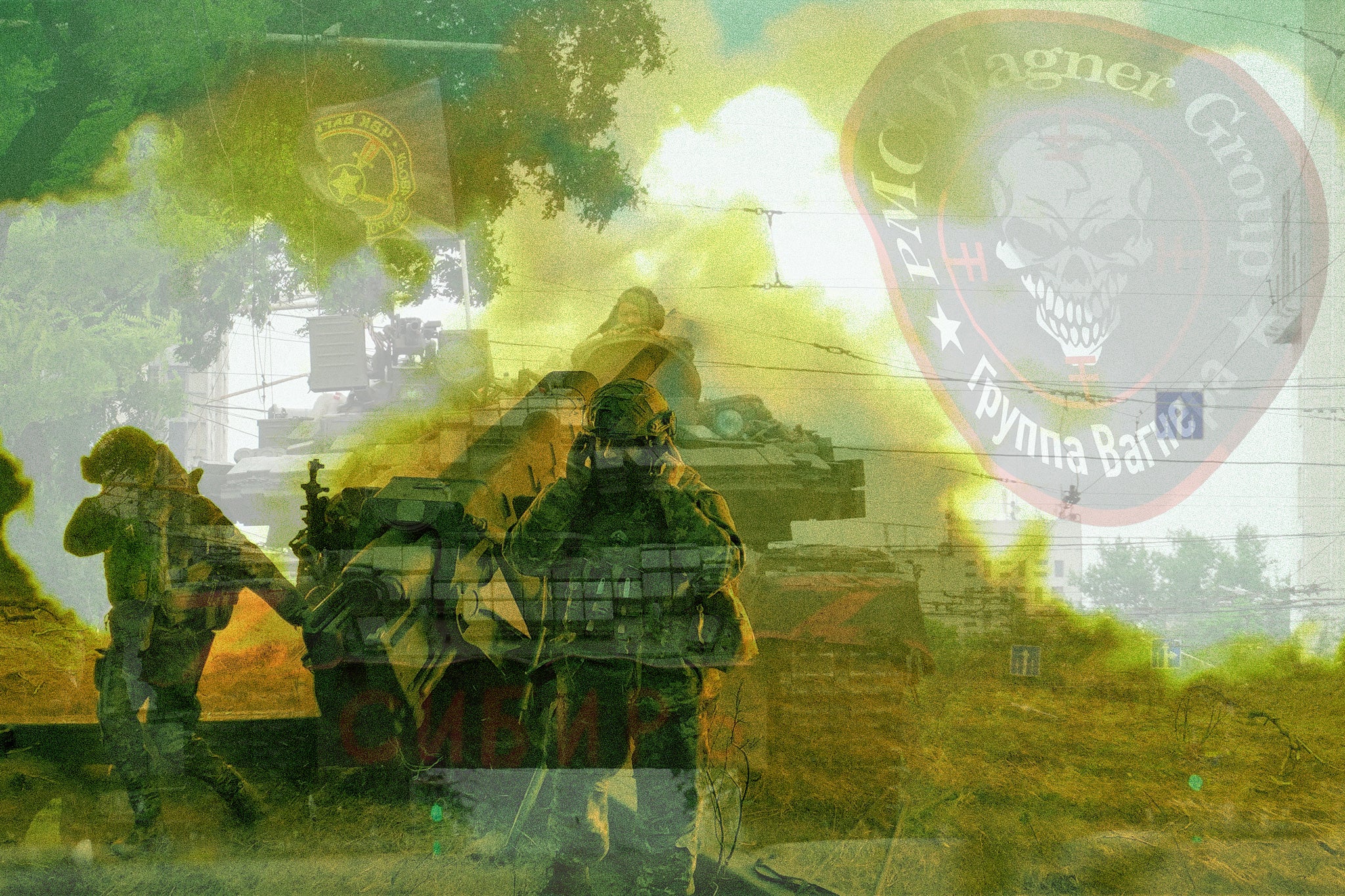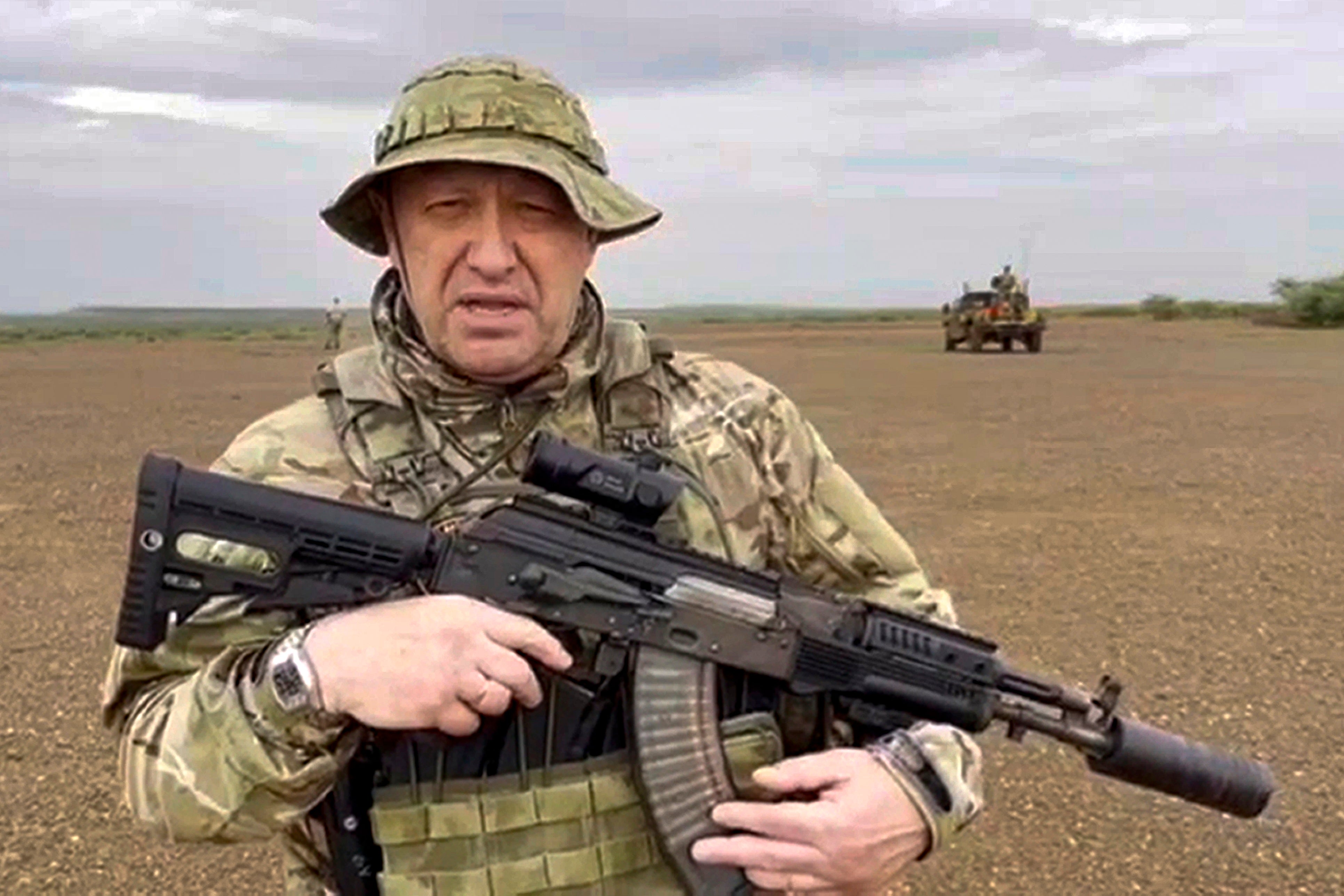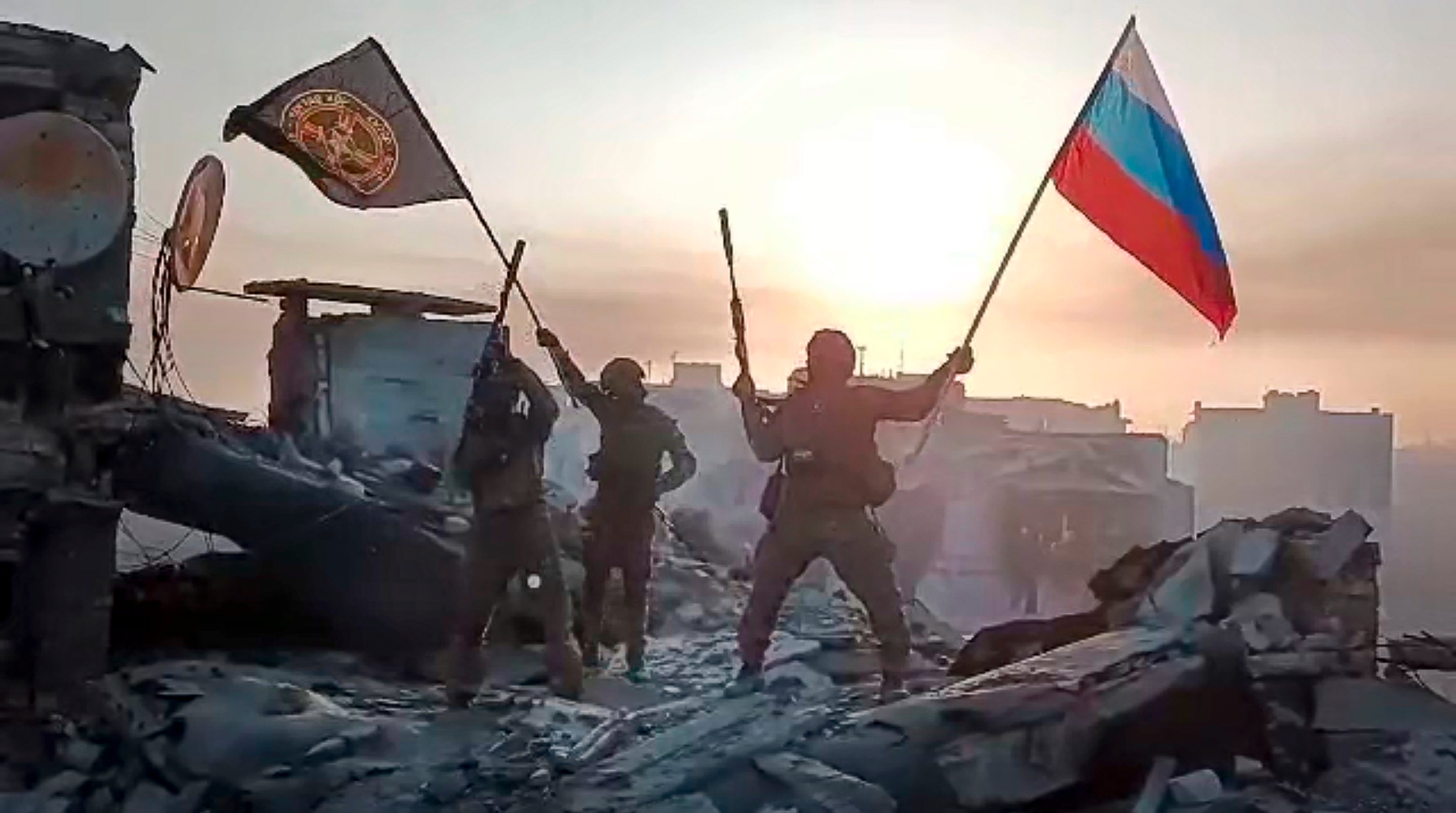With all eyes on crisis in the Middle East – Russia’s Wagner mercenaries are returning to outflank the West in Africa
Kim Sengupta speaks to a former Wagner fighter about how many of those who had fought for the group considering signing back up, with Western officials sure that the Kremlin will seek to exploit the current instability


Your support helps us to tell the story
From reproductive rights to climate change to Big Tech, The Independent is on the ground when the story is developing. Whether it's investigating the financials of Elon Musk's pro-Trump PAC or producing our latest documentary, 'The A Word', which shines a light on the American women fighting for reproductive rights, we know how important it is to parse out the facts from the messaging.
At such a critical moment in US history, we need reporters on the ground. Your donation allows us to keep sending journalists to speak to both sides of the story.
The Independent is trusted by Americans across the entire political spectrum. And unlike many other quality news outlets, we choose not to lock Americans out of our reporting and analysis with paywalls. We believe quality journalism should be available to everyone, paid for by those who can afford it.
Your support makes all the difference.As the drumbeat of war continues across the Middle East, with clashes in multiple countries raising fears of a wider conflict, the mercenaries of Russia’s Wagner Group are once again getting back to action.
Eight months after Wagner’s march on Moscow ultimately failed; six months after Yevgeny Prigozhin and his senior commanders were blown out of the sky in Vladimir Putin’s retribution, the fighters are being recalled to arms with the Kremlin’s blessing.
The snowy fastness of Ukraine has been replaced by the sand and savanna of Africa. There is a new banner to fight under – Africa Corps, a name echoing Field Marshal Erwin Rommel’s German Afrika Korps which took part in the momentous campaign against British and allied forces in Libya in the Second World War.
The Hamas attack on Israel three months ago has led to combat across land, air and sea around the region, with carnage continuing in Gaza and missile strikes and targeted assassinations in the Gulf, Yemen, Lebanon, Syria, Iraq, Iran and even Pakistan.
In this increasingly incendiary scenario, the former Wagner Group is consolidating its presence in Libya and Sudan, part of a highly volatile region, as well as reinforcing in African states where it has replaced departed Western forces.

Many former Wagner fighters are said to have expressed interest in joining the Corps. Sergey, a fighter who had served with Wagner in Syria and Ukraine before leaving just before the attempted coup, said: “They seem serious people, well organised, and so a lot of the men are considering the offer.
“They are using good psychology. They point out that many soldiers find it very hard to adjust back to civilian life: we know, of course, that is the case. They warn about what happened to some who had served in Afghanistan, Chechnya. They got into drinks and drugs, ended up in prison, their marriages ended. Getting back into service is a way of avoiding this.”
“There are a lot of people who miss being with Wagner." he added. "It was a special group at the beginning. Not what happened to it in Ukraine with the convicts and other useless people conscripted, but what it was like at the start, formed by professional soldiers, many from Special Forces. But Africa Corps is also a special name in war isn’t it? A historic name.”

Moscow is keen to take advantage of opportunities that crisis presents, capitalising on the current instability, say Western officials who have been observing Russian activities in North Africa and the Sahel. There is renewed focus on a projected Russian naval facility at Port Sudan on the Red Sea, where the Houthis are in combat with US and UK warships protecting a crucial global trade route. Wagner had carried out initial work on the port project. The group has long established links with Sudan, supplying, it is believed, arms to both sides in the current civil war and enriching from involvement in illicit gold trade.
The Kremlin is also positioning itself, officials say, for the aftermath of the Middle East conflict. One proposed scenario for a Gaza ceasefire is for what is left of the Hamas leadership to move to Algeria – a reprise of Yasser Arafat and the Palestinian Liberation Organisation (PLO) retreating to Tunisia after being forced out of Lebanon by the Israeli invasion of 1982.
The Israeli government has, so far, rejected the Algeria option, vowing to destroy Hamas in Gaza. But if the plan, drawn up by France and Saudi Arabia, was to be implemented, Russian mercenaries in Libya would be in close proximity to the remnants of Hamas.
Former Wagner commanders, it is claimed, have been spotted in Libya arriving recently at the al-Khadim airbase in the east, and Sirte and al-Jufrah in the central region, areas controlled by Field Marshal Khalifa Haftar, the rebel commander who has been backed by Moscow in the country’s internecine conflict which erupted after the overthrow of Muammar Gaddafi.

Moscow is also said to be exploiting the anger in the Global South over the perceived failure of the West, especially the US and UK, to condemn Israel for what has unfolded in Gaza with more than 26,000 lives lost so far, according to the Palestinian health ministry. South Africa has taken the lead in accusing Israel at the UN's highest court, the International Court of Justice (ICJ) of intent to commit genocide in Gaza. An allegation that Israel has vociferously denied.
Russia’s deputy defence minister, Yunus-bek Yevkurov and Major General Andrei Averyanov, from GRU, the Russian miliary intelligence agency, are playing key roles in the Kremlin’s new Africa push.
The two men travelled to Libya to meet Haftar in Benghazi and have also visited the Central African Republic (CAR), Burkina Fasso, Mali and Niger – all countries into which Wagner has moved in, or is seeking to move, in after their military regimes forced the withdrawal of French led Western forces.
One Western security official said: “Russia has obviously been focused on Ukraine and its influence in the Middle East, which was pretty significant, had markedly diminished. They are now seeing a way back and Wagner, whatever name its called now and the future, is a very useful proxy. The difference from before is that now it’ll be much more under direct Kremlin control rather than people like Prigozhin and his associates. There is no denying that there is a bit of a vacuum now security wise with what happened with the French in West Africa, and Russia’s trying to fill that using a PMC [private military company].”

The announcement of the Africa Corps being formed, as a successor to Wagner, originally came from Russian military bloggers. It was confirmed by Igor Korotchenko, a former army colonel and editor-in-chief of the magazine Natsionalnia Oborna [National Defence] who is close to the Ministry of Defence in Moscow.
The Corps is seeking to take over the role of Wagner which had extensive interest in Africa providing security to regimes and strongmen rulers in return for payment, often in the form of lucrative mineral rights.
After President Putin had seemingly forgiven him for his attempted putsch, Prigozhin took part in a tour of Africa to assure clients that normal service will continue with the support of the Russian government.
Riley Moeder, a senior analyst with the US-based New Lines Institute think tank, said: “Prigozhin was filmed in that region before his plane crashed. The region is looking for support, so now Moscow wants to assure them that it remains committed to the region.”
Both Yevkurov and Averyanov knew Prigozhin – but the association was anything but amicable. Yevkurov was pictured as Prigozhin’s prisoner when Wagner forces moved to the Russian city of Rostov in the first stages of the attempted coup--a public embarrassment the Deputy Defence Minister has not forgotten.

Averyanov and the GRU have been accused of being part of the plot to assassinate of Prigozhin and his senior officers, which is alleged to have been organised by Nikolai Patrushev, the head of the Kremlin’s National Security Council.
The Africa Corps, in Telegram posts, presented a "window of opportunity’’ to potential recruits that had emerged in Africa due to countries turning away from the West. Among examples given were the withdrawal of French forces from Mali and Niger. "Now, when Russia has become strong and has challenged the whole world, it needs professional warriors more than ever," said one post.
The Corp wanted to stress that its’ leadership was composed of experienced commanders who had served in “elite” and “specialist” units of both Russia’s armed forces and private military companies.
Some of them, it is said, have been with Wagner. Former members of the Group were welcome to apply for jobs; they would be valued and allowed to wear Wagner insignias on their uniforms alongside that of the Africa Corps.
The recruitment campaign promised high salaries, paid in foreign currencies when necessary, competent and professional command and control and medical care and social benefits including generous compensation for families of fighters who are injured or die on active duty.
Sergey, the former Wagner fighter, who is currently living in a central European country, said: “They have also been very positive on one issue. A lot of people who left Wagner were worried that they’ll be blamed for the mobilisation [the attempted coup] even if they didn’t have anything to do with it.
“These guys are saying that having been in Wagner is not a problem, but actually something good. The only rule, as far as we can see, is that Wagner people who joined Rosgvardia — Russia's national guard – after [the coup] must stay there, they can’t simply transfer over.
What happens to the Africa Corps in the ruthless world of the Kremlin and Russian mercenaries remain to be seen. Its namesake, the Afrika Korps, surrendered with the rest of Axis forces in north Africa in 1943, most of its members were sent to camps in the US as prisoners of war.
Rommel, idolised by his soldiers and admired by the enemy, took part in a failed plot against Adolf Hitler as Prigozhin had against Putin. The Fuhrer wanted to avoid a trial, worried about the reaction that would provoke with Rommel’s popularity with the army and the public. He was offered the choice by his Nazi captors of committing suicide in return for his family and his staff being spared. The Field Marshal put on his Afrika Korps field uniform and took a cyanide capsule.
Join our commenting forum
Join thought-provoking conversations, follow other Independent readers and see their replies
Comments